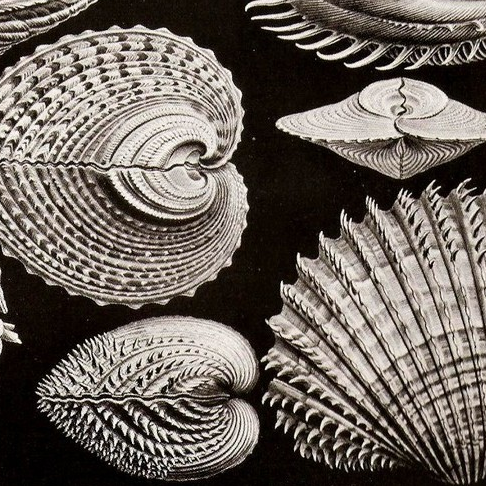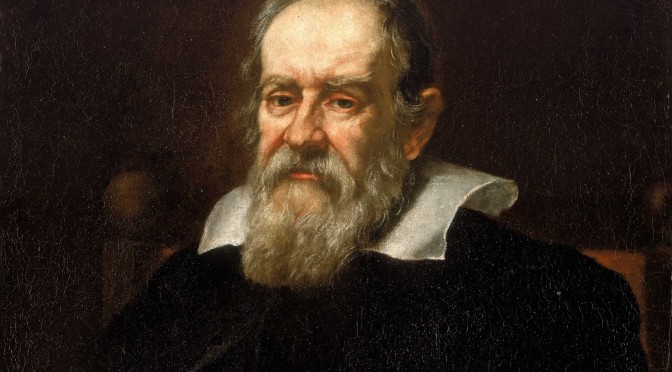By Jeroen Bouterse
The physicist (P), the sociologist (S) and the historian (H) continue their discussion about the demarcation of science in history
P: “OK, so let us retrace our steps and see how we got in this weird place, where you asked me whether an uninfluential Galileo would still be of interest to historians of science.
I stated that science distinguishes itself from other activities by the way in which it studies the natural world, and that it is uselessly confusing to call something science that does not live up to our current standards. I have been quite permissive, I believe, in saying that this doesn’t mean that history of science cannot study astrology or alchemy etc. – not because they are scientific, but because they are causally connected to the history of science. I believe, indeed, that if something is not science and bears no causal connection to science, it is not part of the history of science.”
S: “I believe this shows that you fail to see that ‘science’ is not a natural kind, but a socially constructed category – that the whole word makes sense only within a certain community, and that since communities are different, their authoritative knowledge-gathering institutions will be different.”
H: “I agree with that, but I also feel that P has a point saying that when we study the history of science, our point of departure is what we mean by science. For you (S), too, science seems to be more a class than a historically unique thing; this you have in common with P. I, as a historian, believe that we should conceive of the phenomena that we study not as members of a class but as part of a unique historical development. So, what I have in common with P is that I, too, believe, that science is something special – not because it uniquely conforms to something supposedly transcendent, like truth or rationality, but because it is what we now do when we study the world. History of science studies the history of something that is at least in this sense unique.”
S: “So you are a relativist and an ethnocentrist, then. Don’t you have interest in other societies and their institutions? Is history of science just another Western canon? Are you saying that what distinguishes Roger Bacon and Shen Kua is that one lived in England, where our Scientific Revolution would happen, and the other in China, where it did not – or at least not in a way that we deem relevant? And that only for this reason the historian of science is meant to study the one but not the other: because our society and its scientific culture happen to have descended from the European Middle Ages rather than the Song Dynasty?
H: “This is more or less what I mean. Not because of a sheer lack of interest in other cultures, though, but because of the nature of the historical question about the development of science. It is not too weird to say that early modern English merchants have a different historical relation to modern capitalism than medieval Arab merchants, even if attempts to distinguish their activities by the extent to which they resemble what we currently mean by capitalism would be rather artificial. Of course, it is not just a matter of where someone lived; but it does matter how someone relates – historically, causally – to the things in which we are interested.”
P: “Okay, you make more sense here than I previously thought. So how does this differ from my point of view, then?”
H: “It differs because for you, science is only what we do now and whichever activities in the past or elsewhere resemble what we do now. For me, science is the whole history, the whole tradition, the whole tree of which current science is just one branch. It is not a kind, it is not a class, it is a historical process.”
P: “Okay, so to summarize: when I talk about science I mean something that conforms to our criteria of science; S means something that conforms to the criteria of the community in which it functions; and you mean our science and its genealogy.
But why, then, did you previously attack me for the idea that if Galileo would have been uninfluential, he would not – by my standards – have been part of the history of science? Isn’t that also what you believe? Do we really differ that much, in practice; are you not as Whiggish as I am?”
H: “No, no! You see, my point was that for you, what Galileo did cannot count as science, because if he did the same things today it would not count as proper science. My point is that science, since it develops historically, has seen changes in methods, concepts, theories, goals, etc. all the time. In the 17th century, what Galileo did ‘counted’ as science – and this did not depend on his immediate and personal causal relevance to later science, but on his belonging to a historical culture that is part of the development of science.”
S: “This is the most blatantly holist historicism that I have seen in some time. How do you take into account that this ‘tree’ you were talking about just now is not a clearly delineated thing? Haven’t we learned that science is a category that can be deconstructed; that when you look closely, there is no such thing as science? Isn’t history supposed to provide a critical eye especially to such politically sensitive concepts as science?
You seem to take the conventional discourse concerning this concept at face value: you forgo any way of being able to say, after historical scrutiny, that we need to change our idea of what science means, because you have already allowed whatever powers currently reign our knowledge institutions to decide that for you.”
P: “I have a different objection, coming from the opposite direction but converging with S’s. It is that your ‘genealogical approach’, if I may, necessarily still works with criteria of demarcation, and that it just fails to make these criteria clear and explicit.
After all, you need to provide some account of what it means to be ‘related’ in this genealogy. Evidently, you don’t want biological relation – the mother of a scientist is not necessarily herself a scientist. You want some kind of intellectual influence. It may be that in order for X to be related to Y, X must have been a master or disciple of Y. Perhaps you are more liberal, and also say that if X read a book written by Y, that constitutes a link in the genealogical tree.
Whichever way you pick, if you follow only such a genealogical criterion, it will fail to identify those and only those people as scientists that you actually think are scientists. Very probably, it will include way too many people. Who knows how many scientists were taught by Jesuits whose teachers were definitely self-identified theologians-not-scientists. Oppenheimer read the Bhagavad Gita, but you would not want to say that this is therefore a scientific text.
When you demarcate science, you will probably decide pragmatically to trace only certain chains in the tradition – which will, in practice, be those that you intuitively ‘feel’ are relevant to science. But here I need to agree with S: in that case you are too complacent, and too thoughtlessly and uncritically following existing discourse.”
H: “I see where your criticism is coming from. But I am not certain that following a tradition, or proceeding from existing discourse, should be equated with a lack of thought or criticism. It is also just a way of recognizing that we are not writing history from outside history, but that as much as any of the scientists we write about, we proceed from a historically contingent situation, and employ concepts that we have inherited from the culture with which we happen to be familiar. Just like science does not work in a historical vacuum, we do not create the concepts, theories and goals that inform our historiography ex nihilo.
Again, this is not the same as a lack of critical attitude: after all, our culturally inherited prejudices and expectations are brought to bear upon sources that will not always fit those expectations. When we think that alchemy and science assume completely different and opposed mindsets, it turns out that 17th-century scientists practiced alchemy as well, something needs to give. We will need to change our ideas about those scientists, about alchemy, or about science. Saying that we can bring our own preconceptions to our historical investigations is not the same as saying that those preconceptions trump anything that we can encounter in our investigations.
On the contrary, actually. If we want to remain open to influences from historical sources, it would be unwise to state categorically what counts as science and what doesn’t.”
P: “I disagree. It’s never a bad idea to be clear about what you mean; and you are currently being unclear, not about what science might come to mean after confrontation with the sources, but about what you currently mean by science.
That said, I don’t believe that it is such a good idea to assume that science is as historically contingent as you seem to suggest. It is my firm conviction that scientific methods can often be developed and employed in such ways that they are highly independent from cultural influences in any more or less immediate sense. Of course, S will disagree with this latter point.”
S: “Of course I disagree. But even I believe that, though it is impossible in practice to be independent of your own society and its hegemonic epistemic discourses, it does not follow that you ought to resign to this impossibility. Just like scientists such as P will try to reflect nature in their statements and beliefs, rather than society – and will fail – we historians and sociologists should try to reflect the cultures we study, rather than our own position – fail though we might.”
H: “It seems you both implicitly assume here that history-transcendence and history-dependence connect to truth and falsity, respectively. But this assumption is mistaken: that we historians contextualize science does not imply that we debunk it; and that we take our own culture as a hermeneutic starting point does not mean that we follow it slavishly. As I said, it is precisely the confrontation with history that can change our views about what science means”
P: “Perhaps I agree. It can be that we believe that science works by means of rigid falsificationism, but the historical record shows otherwise. In that sense historical insights may feed into the philosophy of science – though history itself can never be an argument for a specific philosophy of science, I think. Nonetheless, history of science studies science in history – this remains a tautology; we may have a broad view of science, broadened by historical knowledge, but science in history still needs to be science.”
S: “I think the confrontation with the historical record reflects upon our own scientific mainly by showing alternatives to it; it doesn’t mean that we need to adopt those alternatives, only that we should be writing their histories in their own terms. History of science is the history of authoritative knowledge in historical societies – this is simply what it means. It is about whatever constitutes authoritative knowledge in history.
H: “I contribute a final tautology, then, by saying that history of science looks at science and writes its history. I hope that I have at least made some room for this resolution to the problem.”


